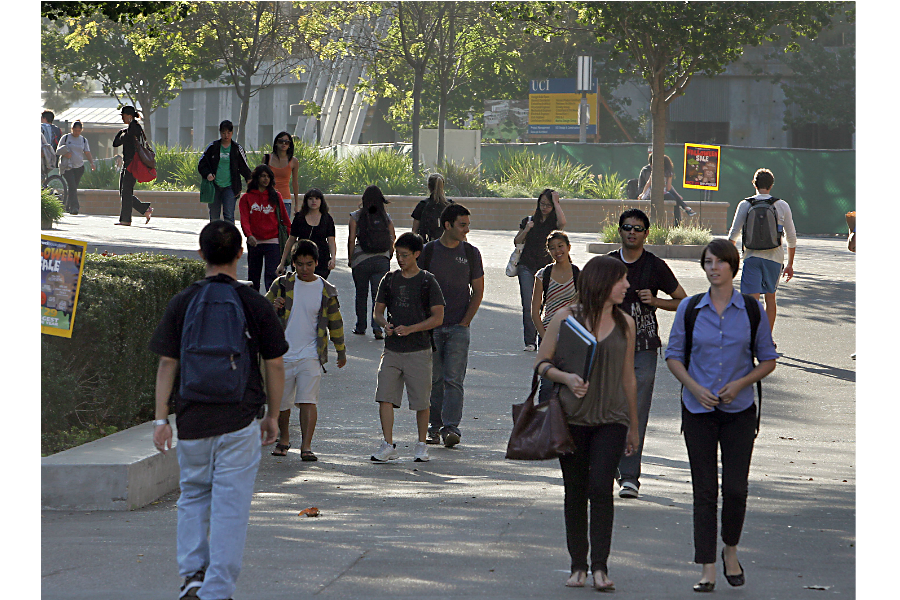Should you tap retirement savings to pay for your child's college?
Loading...
With kids heading off to college this fall, it's tempting for parents to do just about anything to come up with the money to pay for their education, even if it means raiding their retirement funds.
I have some advice for you: Don't follow this temptation.
Digging into retirement funds early — whether it's for something worthwhile, such as college tuition, or something less pressing — can wreak havoc on your golden years.
There are three reasons why it's a bad idea to use retirement accounts for college expenses.
1. There will likely come a day when you really need the money. I realize that many people today are postponing retirement, while others don't want to ever stop working. But the fact is, as many as one out of two of us will be forced to retire earlier than we'd planned.
That's right. Half of us will be forced into retirement before we're ready, either because of a health issue or a change in employment. If you take out money while you are still young and in good health, you may not have the resources to meet your basic needs when you are at an age when you may no longer be able to work.
2. You'll miss out on the miracle of compound interest. Let's assume you are 50 years old and plan on working another 15 years. A $10,000 withdrawal from your retirement account could cost you twice that much. Why? Because of the lost opportunity of having the money grow over that time frame. For example, let's assume you can earn 6 percent on your retirement account over the next 15 years. Had the $10,000 been left in the account to grow, it would be worth roughly $24,000 by the time you reach age 65. So that $10,000 in college expenses really costs you $24,000.
3. The taxes and penalties on early withdrawals are outrageous. The taxation of withdrawals from retirement plans, such as a 401(k), can be quite tricky.
Our income-tax system is progressive, meaning the higher one's income, the higher the percentage of our income will go to taxes. The federal tax rates go from zero to 39.6 percent.
Plus, most states have income tax, as well. All withdrawals from retirement accounts are added on to our other income, which could push you into a higher tax bracket.
A $10,000 withdrawal could easily cost more than $3,000 in federal and state taxes. But that's not all. Unless you are age 59.5, or retired and older than age 55, you'll be hit with a 10 percent federal early withdrawal penalty when you pull the funds from your 401(k). Plus, some states tack on their own early withdrawal penalty, as California does with its 2.5 percent hit.
When you add up all the taxes and penalties, you may find you need to pull out $20,000 in order to net just $10,000. That $20,000 reduction in your retirement account could mean you'll have $48,000 less when you reach age 65, based upon a 6 percent growth assumption.
A $10,000 tuition bill could wind up costing you almost $50,000. There is a way in which you could avoid the early withdrawal penalties from a retirement account.
If the funds are pulled from an individual retirement account and not a work-sponsored plan and those funds are used for college expenses, you won't be slapped with early withdrawal penalties. Ordinary income taxes would still apply, so while this would help a little, it wouldn't be a huge benefit.
So what should you do if you don't have the money for college? There are a number of options.
1. Have your child live at home and attend a college that is within driving distance. He or she won't have the full "college experience" garnered from living on campus in a dorm, but I'm not convinced that living the college life equates to a better education (and one might actually argue it detracts).
2. Enroll your child in a community college rather than a university.There are many smart kids who choose to attend a local community college for their first two years in order to cut down costs. Your student may need to be a little extra diligent, but it can certainly be both beneficial and cost effective.
3. Encourage children to work their way through school. Granted, tuition costs are much higher than they were 20 or 30 years ago, but the student who has to work to help pay the costs will not only gain through the work experience but may also appreciate higher education more than the student who had a free ride.
I attended a junior college for three years after high school, and I worked almost full-time — first for someone else and then buying a small business.
The experience I had running a business prepared me more for my career than the classes I took in school. This enabled me to save up some money to help finance my junior and senior years at a university.
Did I miss out on the dorm life, the frat life and the party life of college? Yes, but by the time I received that undergraduate degree, I was more than ready for the marketplace.
This story originally appeared on CNBC.com.








